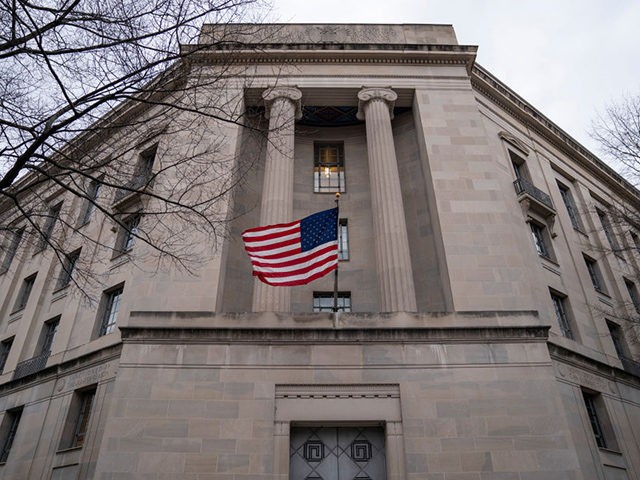The Department of Justice announced Wednesday that it had arrested Douglass Mackey, a.k.a. Ricky Vaughn, for memes posted on Twitter in 2016 that told people they could vote for a candidate (apparently Hillary Clinton) via text message.
The criminal complaint alleges that “at least 4,900 unique telephone numbers” sent a message with the candidate’s name to the number given, “on or about and before Election Day.”
It does not say whether any of them refrained from casting a real vote.
The federal statute under which Mackey is being charged, 18 U.S.C. 241 (“Conspiracy against rights”) does not require a victim actually be deprived of his or her rights — only that “two or more persons conspire to injure” them in that right.
According to the complaint, Mackey and others also intended to convince black voters not to turn out. They used an image of an African American woman in one of their memes, allegedly with that intent, adorning it with campaign slogans.
Neither the complaint nor the FBI’s accompanying press release explains, however, how the government plans to survive a First Amendment challenge.
The law makes it a crime to “injure, oppress, threaten, or intimidate any person … in the free exercise or enjoyment of any right.” It does not specifically say anything about providing false information.
There has been considerable debate over whether 18 U.S.C. 241 may conflict with the First Amendment. Many of the cases have involved speech that has an intimidating effect that implies a threat to use violence, such as burning a cross.
The original 1909 statute intended to punish efforts to threaten and intimidate voters, including in disguise, such as the Ku Klux Klan. It has since been amended several times, but not in ways that would resolve the First Amendment issues that it raises.
The statute has been cited in defense of free speech, as in 2016, when conservative law professor and pundit Glenn Reynolds argued that Democrat officials’ threats (including by then-California Attorney General Kamala Harris) to investigate political donations to groups that are skeptical of climate change amounted to a violation of the law.
The FBI’s press release highlights “disinformation,” but that word could have very broad interpretations.
Social media is full of deceptive information, much of it designed to motivate voters, or discourage them from voting. (As such, the racist meme described in the complaint was not particularly successful; it was retweeted just 175 times.) Many conservatives criticized the decision to prosecute Mackey on Wednesday because it seemed to be selective prosecution.
For example, a liberal comedian posted a similar tweet on Election Day in 2016, hoping to fool (or mock) Trump voters:
Hey 🇺🇸Trump Supporters🇺🇸! Skip poll lines at #Election2016 and TEXT in your vote! Text votes are legit. Or vote tomorrow on Super Wednesday! pic.twitter.com/ES34HV0yad
— Kristina Wong ❄️ (@mskristinawong) November 8, 2016
The complaint alleges that Mackey’s account was the 107th most influential presence on social media at one point in 2016. That put him ahead of NBC News, at 114th, but behind many, many other people (the full list of influencers is here.)
In its press release, the FBI also took the unusual step of noting, with approval, that Mackey’s online reputation had been damaged — perhaps by the prosecution itself. That is a reaction somewhat at odds with the presumption of innocence.
“He may have been a powerful social media influencer at the time, but a quick Internet search of his name today will reveal an entirely different story,” a senior FBI official was quoted as saying.
The crime for which Mackey has been charged carries a potential ten-year sentence.
It is unclear why prosecutors waited four years to charge a crime that likely did not take that long to investigate.
On Wednesday night, Tucker Carlson of Fox News said that Mackey was arrested for “online mockery.” That perception could have a chilling effect on free speech.
If so, the prosecution could be said to “intimidate” people in the “free exercise” of their rights — not unlike the crime Mackey is alleged to have committed.
Joel B. Pollak is Senior Editor-at-Large at Breitbart News and the host of Breitbart News Sunday on Sirius XM Patriot on Sunday evenings from 7 p.m. to 10 p.m. ET (4 p.m. to 7 p.m. PT). His newest e-book is How Not to Be a Sh!thole Country: Lessons from South Africa. His recent book, RED NOVEMBER, tells the story of the 2020 Democratic presidential primary from a conservative perspective. He is a winner of the 2018 Robert Novak Journalism Alumni Fellowship. Follow him on Twitter at @joelpollak.

COMMENTS
Please let us know if you're having issues with commenting.